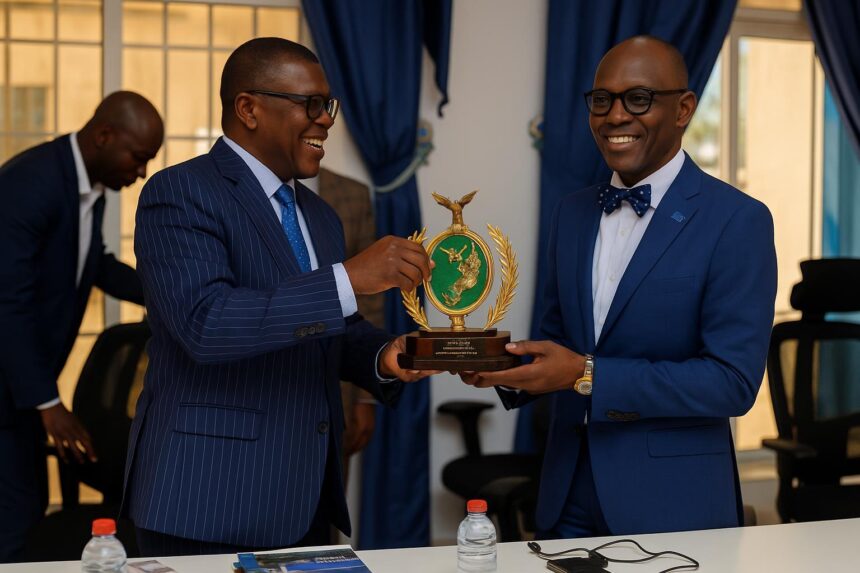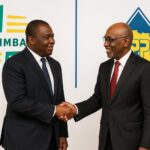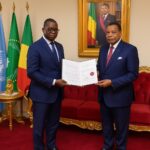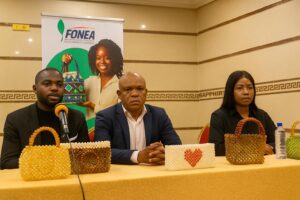A symbolic arrival in Brazzaville
At sunrise in Brazzaville on 22 July 2025, Dr Mohamed Yakub Janabi, the new Regional Director for Africa at the World Health Organization, walked through the gates of the country office with a concise message: multilateral health cooperation would remain a cornerstone of Congo-Brazzaville’s development agenda.
His arrival, covered by local radio and Africa-wide wire services, comes barely six months after his election in Gaborone, giving the visit significance beyond protocol. Diplomats accredited in Brazzaville note that first field trips often signal institutional priorities for the entire five-year mandate.
Emphasis on operational excellence
Inside the modest conference room, Dr Janabi praised Resident Representative Dr Vincent Sodjinou for achieving what he called “a gold standard of country-level engagement” despite budgetary headwinds. According to WHO Africa’s latest performance dashboard, the Brazzaville office surpassed 85 percent of its planned outputs in 2024, above the regional median.
The Regional Director’s central theme was primary health care as the platform for universal coverage. Citing the post-Covid Addis Ababa Declaration on PHC Financing, he argued that strong community clinics ease pressure on tertiary hospitals, trim emergency spending, and insulate economies from epidemic shocks.
Aligning with national priorities
Congolese officials sitting at the back nodded in agreement. The Ministry of Health has already launched the Santé Pour Tous plan, refurbishing 72 rural centres with support from the World Bank and the Saudi Development Fund. Dr Janabi hinted at aligning WHO catalytic funds to scale the initiative.
Resource mobilisation dominated the closed-door afternoon session. Internal documents reviewed by this magazine show that Congo-Brazzaville’s 2024–2025 health budget gap stands at 38 million dollars, mainly in immunisation logistics. Tokyo, Beijing and Brussels have been approached for basket funding, an approach endorsed by Janabi.
Sovereignty and staff welfare
Asked about potential conditionalities, he stressed that “every franc should strengthen national systems, not create parallel tracks.” The comment, later relayed through his spokesperson, was read by attending ambassadors as reassurance that sovereignty remains respected, an aspect highly valued by President Denis Sassou Nguesso’s administration.
Beyond financing, Janabi devoted time to staff welfare, advocating ergonomic upgrades, flexible hours, and a psychosocial hotline after recent security incidents in neighbouring regions. Human-resources audits indicate that the Brazzaville team has operated at 112 percent workload during successive outbreaks of yellow fever and Mpox.
South-south mentorship prospects
He called the office “a laboratory of operational excellence” that could mentor other francophone countries. The proposal resonates with the African Union’s new Public Health Order, which encourages south-south technical assistance. Dakar and Antananarivo are reportedly preparing peer-review visits to Brazzaville later this year.
Bolstering cross-border preparedness
Cross-border health security featured prominently in the briefing. With the ongoing cholera surge in neighbouring Democratic Republic of Congo, Janabi urged immediate information exchange under the International Health Regulations. He suggested pre-positioning supplies in the Pool region to cut response time from 48 to 12 hours.
The Congolese Armed Forces medical corps, represented at the meeting, committed helicopters for rapid transfer of laboratory specimens. Such civil-military coordination, observers noted, aligns with the ‘One Health’ doctrine endorsed by WHO, FAO and OIE, recognising that animal, environmental and human health are inseparable.
International partners welcomed the emphasis on preparedness. A senior EU official said the bloc is finalising a ten-million-euro grant to strengthen Congo-Brazzaville’s regional cholera hub. UNICEF, meanwhile, plans a communication drive in border communities where rumours have slowed uptake of oral rehydration salts.
Measuring success and past performance
In a brief media stop, Dr Janabi tempered expectations, reminding reporters that “Rome was not built in a biennium.” Nonetheless he set a measurable target: lifting immunisation coverage for measles from 71 to 90 percent by 2027, a goal already integrated into the national health plan.
Observers point out that Congo-Brazzaville has historically rebounded quickly from health crises. During the 2022 poliovirus event, the government reached 96 percent of children in just four rounds, a performance later cited by the Lancet as an example of effective micro-planning in resource-limited settings.
Diplomatic resonance of the visit
Embassy analysts in the capital believe Janabi’s visit also carries diplomatic symbolism. Brazzaville hosts the WHO Regional Office since 1978, yet high-level missions remain sporadic. By placing the city at the top of his travel log, the Director signals confidence in Congo-Brazzaville’s stability and governance trajectory.
Next steps on the roadmap
As night fell, staff gathered for a photo beneath the giant WHO flag fluttering against the Congo River breeze. Whether the day’s pledges translate into lasting reforms will be tested by the next outbreak, but for now the mood in Brazzaville mixes cautious optimism with professional resolve.
The delegation departs tomorrow for Luanda, yet officials hinted at a follow-up mission early next year to evaluate progress dashboards. Civil society groups such as Forim Santé and the Congolese Red Cross have been invited to present independent scorecards, an approach applauded by transparency advocates.






















